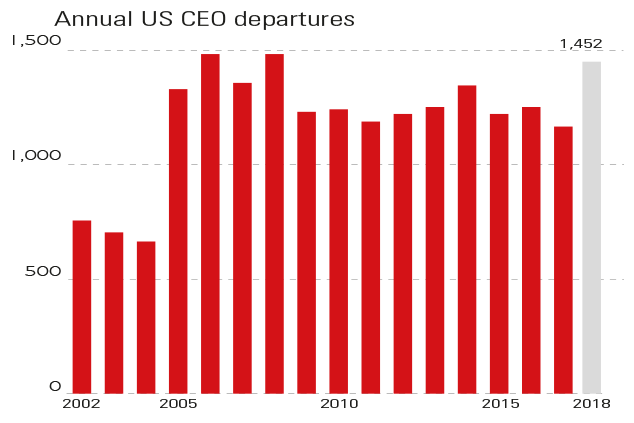
More than 1,400 CEOs of US companies left their jobs in 2018. Departures rise when the economy slows and earnings and share prices weaken, so it’s no surprise that the number of leavers hit a ten-year high, says Ryan Derousseau in Fortune.
But CEO exits can spell opportunity. If they occur in the context of a “strategic realignment” rather than retirement or scandal, the shares tend to struggle for a year or so but then rebound and do better than their sector counterparts.
Strategic overhauls usually mean firms concentrate on improving their businesses rather than engaging in gimmicks such as share buybacks. After three years, capital expenditures increase by 36% on average.
Viewpoint
“Lloyds and the rest… are still no more than leveraged bets on the UK economy. You’d want to be on the other side of that bet right now, so bank shares look like ones to short. Barclays can offset the UK strife a bit because of its US arm, but in the past quarter most of Wall Street had a shocker, so there’s no reason to think Jes Staley’s crew didn’t… If they have, the bankers at Barclays are complete geniuses. That would be a first. The other reason for concern is the clear rise in corporate accidents. Homeowners are okay so far, but company calamities are plainly on the rise… Even well-run firms are feeling the pinch… RBS, Lloyds and Barclays will swear blind everything is just fine… and there’s not the slightest need to adopt a more conservative approach. And no, we still aren’t telling you how much money we’ve lent to retailers. If you think you’ve seen this movie before, you’re right.”
Simon English, Evening Standard